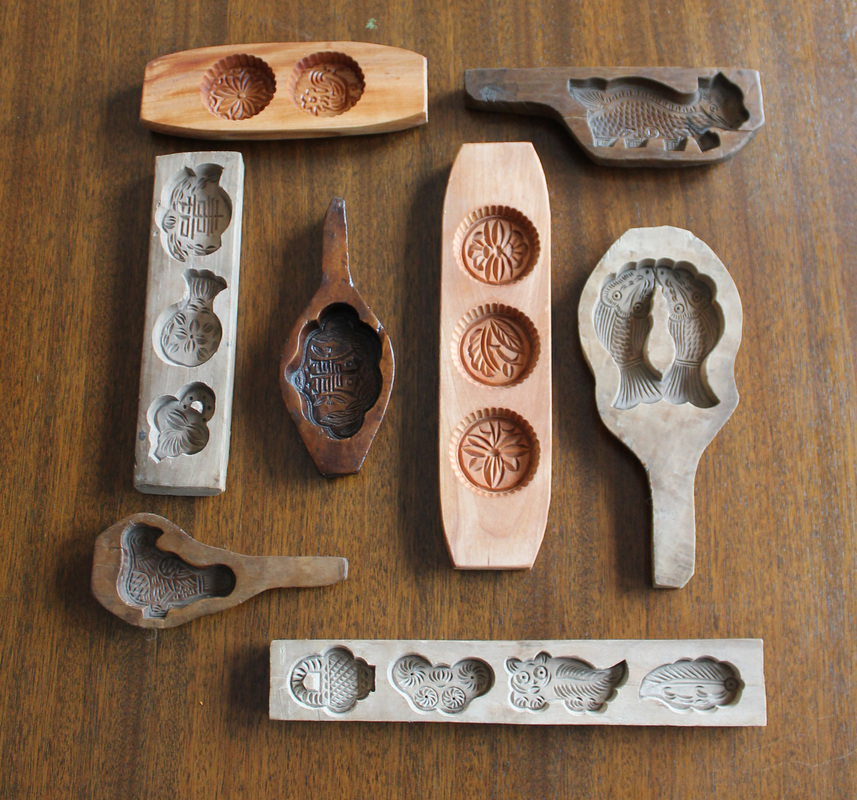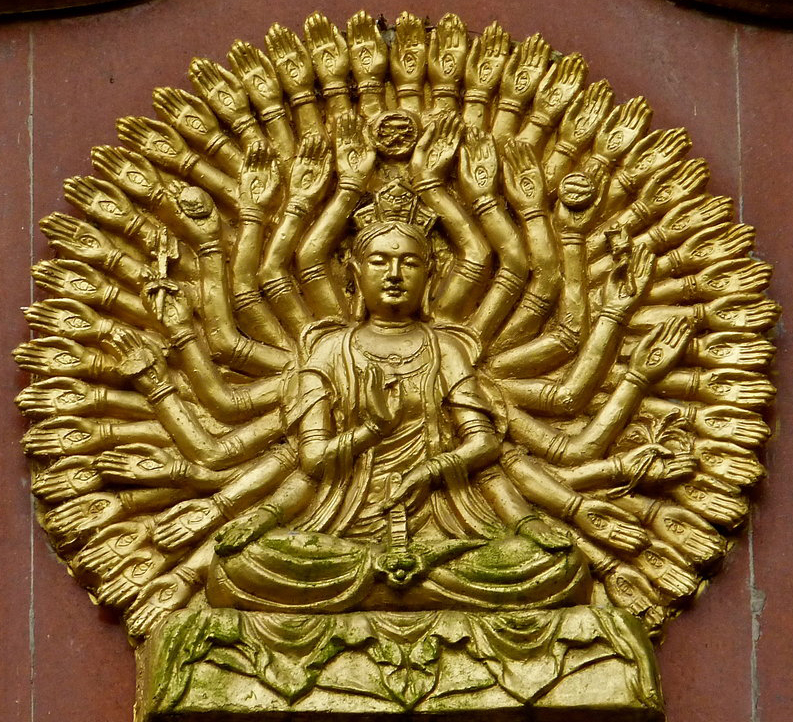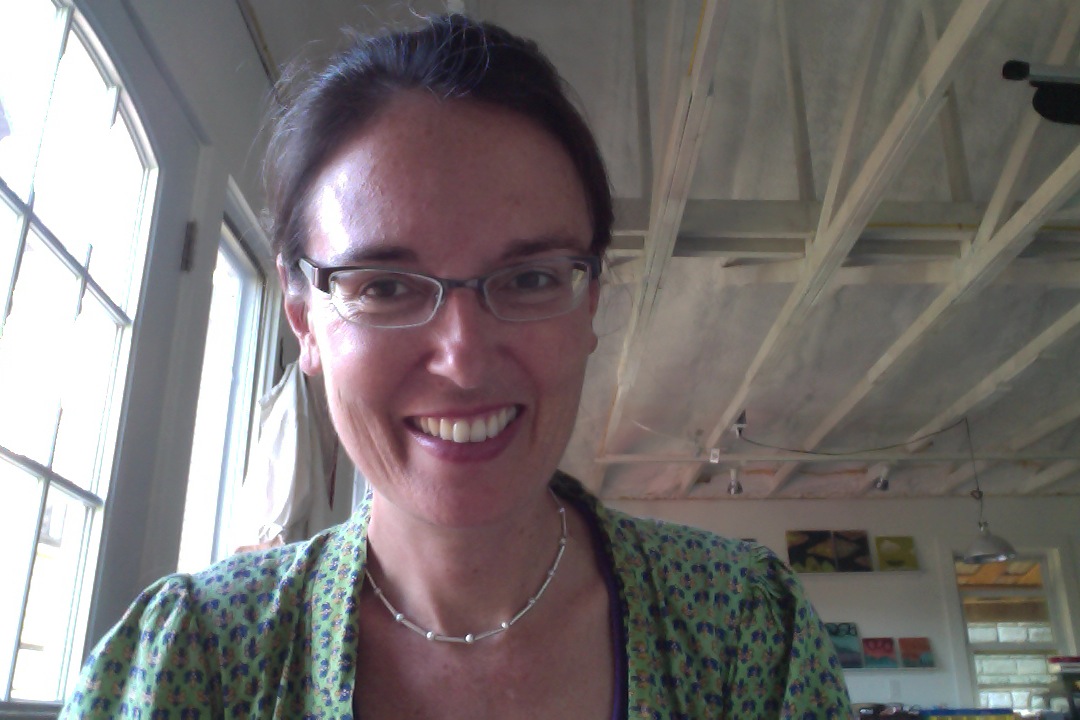|
Sam and I sit under the trees in the park where the two rivers meet, and eat Syrian apricot cookies cast in Chinese mooncake molds. Adrian and I walk along the Baltimore inner harbor, past stacks of burnt-out plaster molds, from some mysterious foundry project unfolding in the swanky warehouse lofts nearby. Have they been producing artisanal garbage cans? Garbage cans are the only objects nearby of roughly the right size and shape. Education and religion are molds, and ideally their molding is a process in which the student or disciple adopts a chosen form and takes it on wholeheartedly. If entered into completely, the training form displaces other possible addictions and patterns, other ways of getting embroiled. The student applies herself to learning the shape of the mold and inhabiting it with her being. She is pressing life into a training pattern established by others who (hopefully) see both its usefulness and its limitations. Through study, she learns the mold's contours: which parts of her being are glad for its shelter, and which, obviously, yearn for a different shape altogether. She learns about resistance-energy, about the rewards of accepting a community's mold, and the costs. She begins to develop insight into being itself: the primordial nature that is not a mold & is not a being-molded. It is awareness itself, the awakening energy at the core of all that is, the matrix of all our patterns. Seeing this, she knows mastery of her chosen form, and, transcending it, realizes the formless. Ryushin Sensei grew in the mold of western science - a pediatrician and psychiatrist - and trained in the mold of Zen - the Mountains and Rivers Order. When I met him, he was Abbotting - teaching brilliant Dharma talks at Zen Mountain Monastery, residing with his nun-wife, Hojin, hosting genially at the meal tables in the great hall of the stone house in the forest. He was kind, amused by Elana and I, on retreat together, hilarious together, and he wanted to know what we were doing. Elana fed him cookies - a much better answer than my stiff lineage-talk. Just lately, it seems Ryushin has been either breaking or going more deeply into his molds. Darkly muttered Shamanic Interests. Deeply condemned Extramarital Affair. Bad-boy confession, six-month exile, reproof. All of it very Somebody. I am reminded of the end of the Earthsea Trilogy. Ged has gone into the dark to restore the integrity of the border between life and death. He's come back with the Rune of Peace, revealed his young fellow-traveler to be the long-awaited King, and arrived on the back of a great dragon. There's to be a feast for him with songs and more, but instead, Ged gets back on the dragon, his friend, and flies away to his obscure island home. He has done with doing, someone says. That seems the way. Stepping down, stepping out, letting go of Sensei, and going out into life unfixed by any mold. Much later, when Ursula Le Guin returns to Ged in her writing, she makes him a moody goatherd. All his magic is gone, and so he is ready for an open life, a life with room for the ordinary-extraordinary roots of love. May it be so for Ryushin, as for us all. Wei wu wei. Doing not-doing means acknowledging that the molds have never really fit, and the desire to force a match is gone. No more sliced-off toes, no more sliced-off heel, no more glass slipper, no more Princess. Margery says, Kung fu means mastery. It means whatever you are doing, you do it with full presence. It's transferable, and, in the style of many-armed Kuan Yin, it's adaptable. Why harden around identifying with one way of being, when the next situation will require another? Much better to develop the ability to fill any mold with skill and discipline, and then to set it aside gratefully, as soon as its usefulness is done. Not a tai chi expert, or a meditation expert. Not a painting expert, or a cooking expert. Just being, skillfully. This goes against the logic of the world, because constantly embodying & moving on leaves little trace. How will I be recognized? How will I be praised? Maybe not at all. Maybe it will all seem squandered. Maybe Most Horrible, I will never give a TED Talk.
But, when I sit down in the second row of the Baltimore-Boston flight and realize that I've somehow joined the Unaccompanied Minors' Club, I know what to do. Open. Let go of other plans and preoccupations, and listen to two 12-year-olds' stories about water parks and grandmothers. Use their sharpies to draw a cheetah & a birthday cake. When the boy by the window says he is "dark" and likes to draw "dislocated" people, ask him if that is because something very painful is happening in his life. When he says, My mom, wait a bit and ask if she's sick. When he says, She used to beat me, and that's why I'm going to live with my grandma, and that's why I like to draw her, dislocated, tell him there's nothing wrong with him. Tell him he's a great kid. Tell him he'll find other ways of working with his pain, besides more pain, and anger. Listen to Katy Perry's Roar together, and, descending through the clouds, add red Jordans to the cheetah. As for the little girl, listen to her love for her Nana, and admire the Febreze-scented Pooh-Bear doll that takes up 2/3 of her carry-on luggage. Agree, definitely, that her older sister, Madison, is nicknamed May-dog, and NOT Maddie. Listen to the lore of her hamster, Thor, with his long blond hair, and, lo, the lore of the hamsters who came before him. The boys says, We will meet again, and I will be 10 feet tall, and you will have white hair, and I will be your favorite student. Yes, why not, may it be so. Her stylish Nana is waiting, with her good haircut. His aged Grandma is waiting, an oxygen tube in her delicate nose. They cry together, molded into an embrace of love and relief. Hang in there, old lady! This kid will need refuge for a long time. Not the mother-mold, and not the not-mother-mold. The endless, shifting shapes of presence, response, creation. I wouldn't trade this dance for anything.
0 Comments
Leave a Reply. |
|



 RSS Feed
RSS Feed